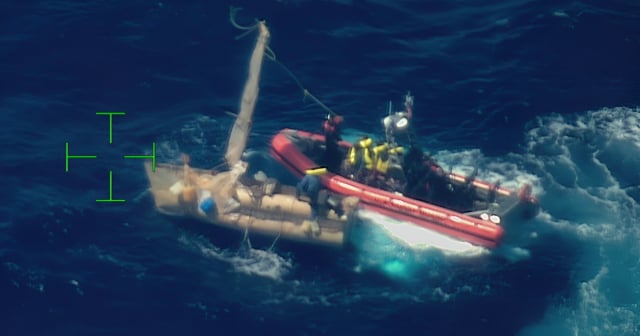Donald Trump's immigration policies are causing tension among Cubans who feel their chances of legalizing their status in the United States are at risk, particularly amidst uncertainty regarding the potential repeal of the Cuban Adjustment Act (CAA).
Journalist Mario J. Pentón interviewed Cuban-American lawyer Wilfredo O. Allen to discuss whether Trump could eliminate the Cuban Adjustment Act upon taking office as president of the United States in January. Allen categorically ruled out this possibility, deeming it unlikely.
"There’s a greater chance that Martians will land than that Trump will eliminate the Cuban Adjustment Act. To do so, the president would have to announce to the U.S. Congress that Cuba has held free, transparent, and democratic elections. I suspect that won’t happen for a long time," Allen stated.
The lawyer also commented on the future of the humanitarian parole program, a recent measure that has allowed thousands of Cubans to migrate to the United States.
"This program is dead, and if it's not, it will be in January when Trump takes power," Allen said. He recommended that Cubans seek other legal alternatives to emigrate to the United States. He mentioned family reunification, a policy established by President Bill Clinton in 1997, which he does not believe will be eliminated.
Allen's analysis underscores the complexity of the migratory landscape for Cubans within a political context characterized by uncertainties and restrictive measures.
The Cuban Adjustment Act was passed by the United States Congress in 1966. Among other topics, this law is known for allowing a person who can demonstrate their status as a Cuban citizen to regularize their immigration status one year after their legal entry into U.S. territory.
In 1999, the CAA was benefitted by administrative provisions that facilitated its reach and advantages for applicants. However, the tightening of U.S. immigration policy in response to ongoing waves of illegal Cuban immigrants has led to the repeal of some amendments in recent years.
Despite this, the original body of the law cannot be changed by administrative provisions, only by a decision of the United States Congress.
Frequently Asked Questions about the Cuban Adjustment Act and Trump’s Immigration Policies
Can Donald Trump repeal the Cuban Adjustment Act?
It is highly unlikely that Donald Trump will be able to repeal the Cuban Adjustment Act. According to attorney Wilfredo O. Allen, to do so, the president would need to demonstrate to Congress that Cuba has held free and democratic elections, which is not foreseeable in the near future.
What is the Cuban Adjustment Act and how does it benefit Cubans in the U.S.?
The Cuban Adjustment Act allows Cubans to regularize their immigration status in the U.S. after one year of residency in the country. This law provides a pathway to legal residency, giving a significant advantage compared to other migrant groups.
What will happen to the humanitarian parole program under the Trump administration?
The humanitarian parole program could be eliminated when Trump takes office. Attorney Wilfredo Allen has indicated that the program is "dead" or will be soon, so he advises Cubans to seek other legal avenues for emigrating to the U.S.
What alternatives do Cubans have if humanitarian parole is eliminated?
One of the alternatives for Cubans is family reunification. This program was established by President Bill Clinton in 1997 and is not expected to be eliminated. It provides a means for Cubans to emigrate legally to the United States.
Filed under:
